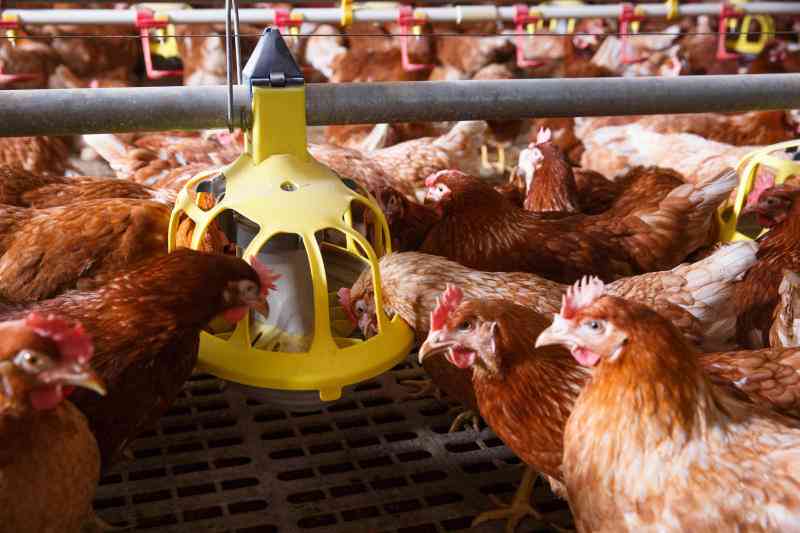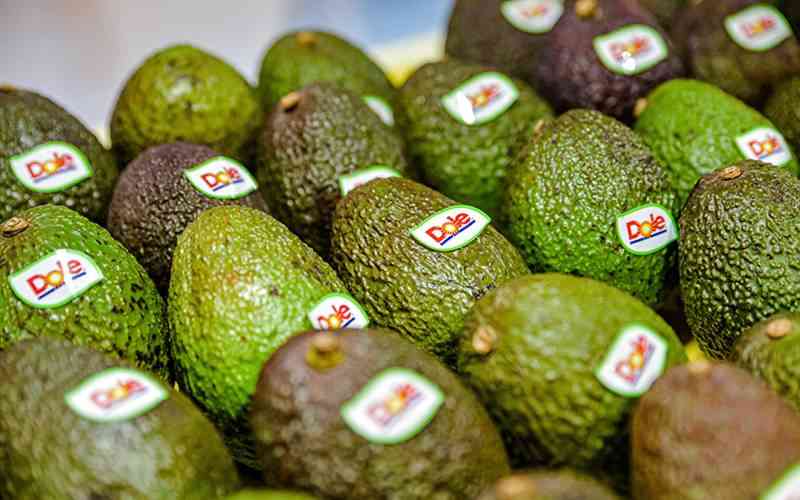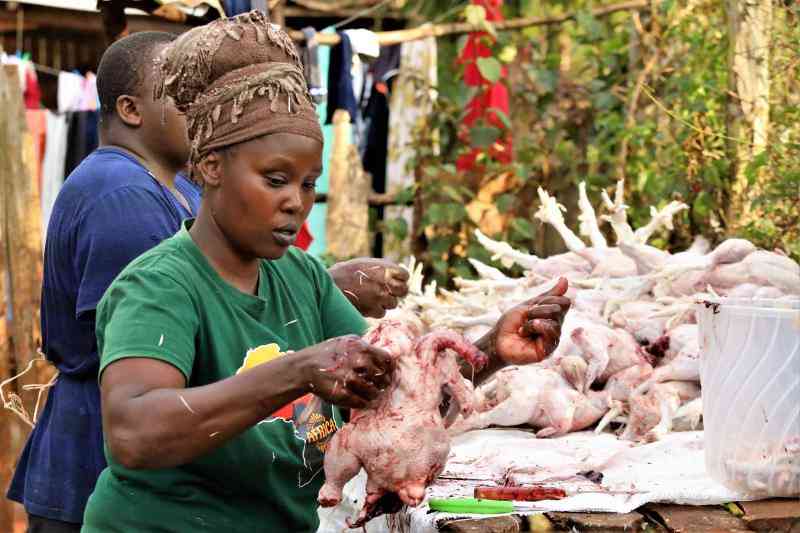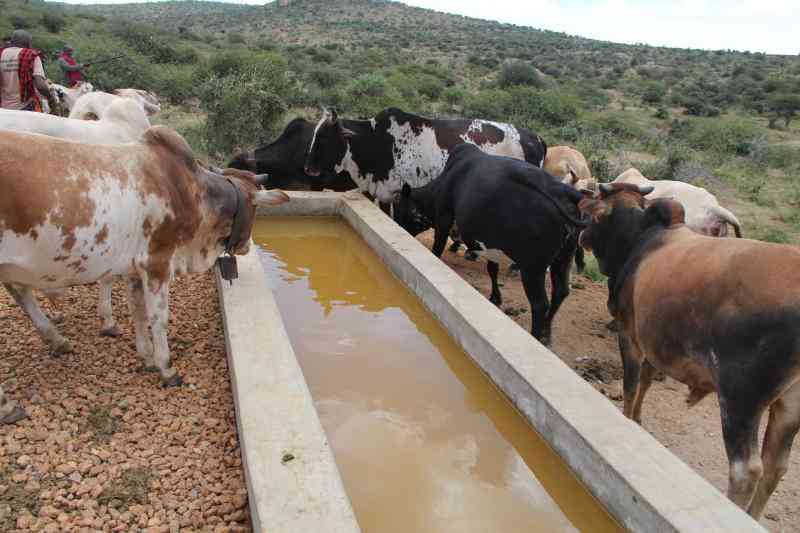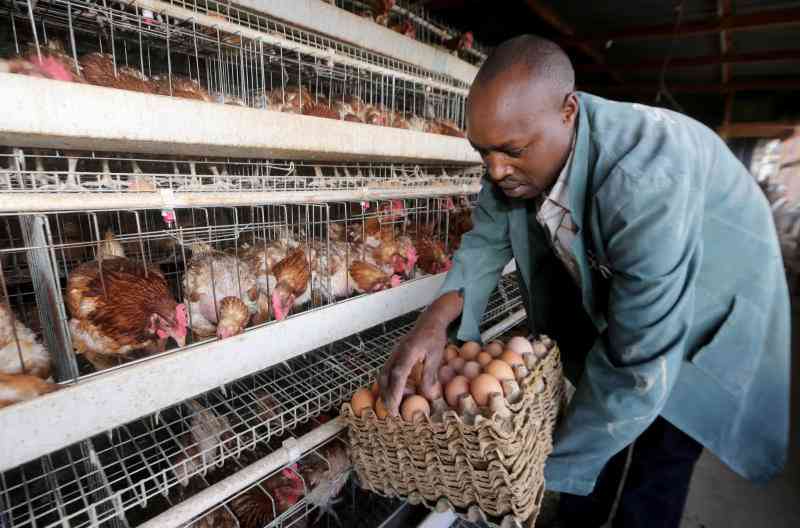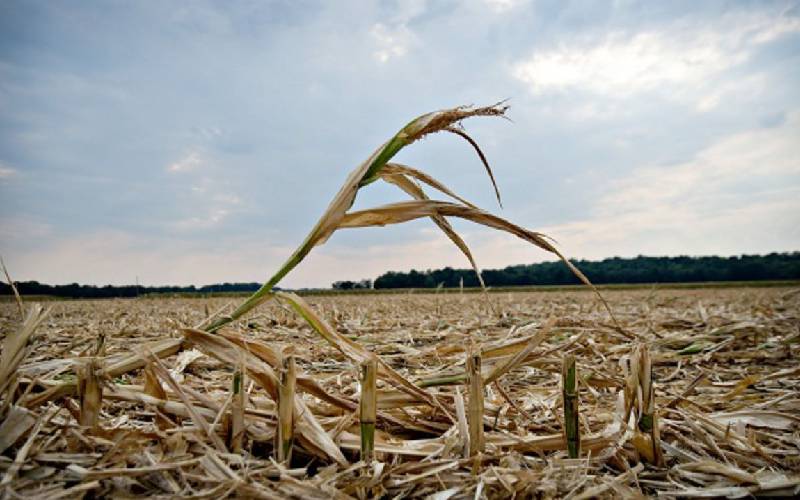
A novel financial product which helps farmers manage loan risks is transforming lives of small holder farmers in Machakos County.
The Risk-Contingent Credit (RCC) plan pays for a farmer’s loan in case they suffer weather-related crop failure.
The loan is given in form of inputs and acts as a social safety net, allowing farmers to stay in business even during poor harvests. So how does it work?
“By minimising risk, the project gives farmers confidence to invest in their farms, increasing their resilience against risk and maximising their incomes,” explains Dr Nathanial Matthews, Programme Director, Global Resilience Partnership (GRP).
Climate change he says, produces unpredictable short and long rainy seasons, in Africa, making farmers vulnerable to weather shocks.
“Drought-affected communities in the Horn of Africa struggle to access the financing they desperately need to adapt and thrive in the face of climatic challenges. But with this tool, there’s hope,” Matthews says.
Safety net
The programme in Machakos is part of GRP’s two innovative projects that would pilot new financial products to boost resilience of the millions of smallholder farmers in Kenya.
So far, the project has touched 1,170 households from 78 villages and they are now able to plant crops and in cases where drought or floods cause crop failure, they have a safety net to fall back to.
Nduku Muange, 42, a beneficiary of the project from Kathiani who plants maize and beans speaks highly of it.
“This loan plan has put a smile on our faces. To get on board, we were first trained about the best farming projects before each farmer was given Sh10,000 as a loan on condition the money is used to buy seeds and fertiliser from local suppliers,” Nduku explains.
Pay school fees
The cash has made a big difference in their lives.
“The first season was very good and we had a bumper harvest. We were able to feed our families and sell the surplus, making it easy for us to pay school fees and buy other basic utilities,” Nduku says.
Last year was tough and had it not been for the loan plan, it would have been worse.
“....thanks to this project, we had something to fall back to when our crops failed due to drought during the short rains of October to December 2017,” Nduku recalls.
Francis Muongo, from Ngoleni village received the Sh10,000 loan and has used part of the money to plant beans.
“I expect a good harvest though this is the short rain’s period. I have used part of the money to pay people who have been assisting me on the farm to tend to the crops,” says the 60 year-old.
Going forward, the farmers have appealed to the donor and Machakos Governor Alfred Mutua to avail more money so that they can engage in largescale production.
“Most of us have small farms but with more money we can lease other farms and access more inputs to produce more and make our lives better,” Nduku says.
Mr Matthews says GRP is seeking more partnerships to expand the project.
“The pilot has confirmed that this is a viable project. We are partnering with more organisations to give more money so that we roll it out the project on a bigger scale,” Matthews said.
Mutua promised to give the farmers money and farm inputs at subsidised rates.
“My focus is to make Machakos County food secure. My administration will give the farmers more money and inputs at cheaper prices...” Dr Mutua said.
Want to get latest farming tips and videos?
Join Us
 The Standard Group Plc is a multi-media organization
with investments in media platforms spanning newspaper print operations,
television, radio broadcasting, digital and online services. The Standard Group
is recognized as a leading multi-media house in Kenya with a key influence in
matters of national and international interest.
The Standard Group Plc is a multi-media organization
with investments in media platforms spanning newspaper print operations,
television, radio broadcasting, digital and online services. The Standard Group
is recognized as a leading multi-media house in Kenya with a key influence in
matters of national and international interest.
 The Standard Group Plc is a multi-media organization
with investments in media platforms spanning newspaper print operations,
television, radio broadcasting, digital and online services. The Standard Group
is recognized as a leading multi-media house in Kenya with a key influence in
matters of national and international interest.
The Standard Group Plc is a multi-media organization
with investments in media platforms spanning newspaper print operations,
television, radio broadcasting, digital and online services. The Standard Group
is recognized as a leading multi-media house in Kenya with a key influence in
matters of national and international interest.


